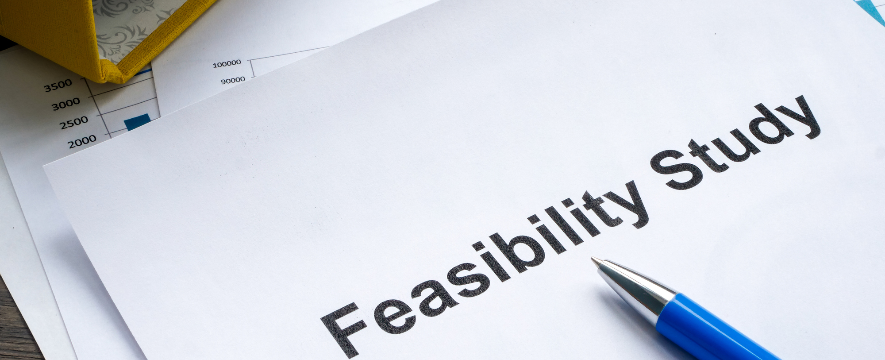Establishing Feasibility Study Needs for Hotel Development
Introduction
A feasibility study is the cornerstone of any successful hotel development project, serving as the analytical blueprint that evaluates the viability, profitability, and long-term sustainability of the proposed investment. Unlike standard commercial developments, hotels require a continuous operational model that blends real estate, service delivery, branding, and customer experience. A detailed feasibility study provides insight into whether a specific hotel concept can thrive in a given location, under current market conditions, with anticipated competition, and within projected financial structures. For investors, developers, lenders, and brand operators, this study reduces uncertainty, validates decision-making, and aligns design, planning, and operational strategies with market realities. Without a comprehensive feasibility analysis, hotel development can fall victim to flawed assumptions, regulatory hurdles, and market mismatch—leading to underperformance or complete project failure.
Market Demand and Supply Analysis
The first component of a hotel feasibility study focuses on analyzing market demand and supply dynamics. This includes assessing the types of travelers that frequent the location—such as corporate, leisure, MICE (meetings, incentives, conferences, and exhibitions), or transit guests—and understanding seasonal fluctuations, booking behaviors, and length-of-stay trends. The study must quantify demand using data on historical room nights, tourism statistics, local event calendars, and transportation infrastructure. Simultaneously, a detailed supply analysis evaluates the existing and upcoming hotel inventory in the area, categorized by segment (luxury, upscale, midscale, economy), number of rooms, average daily rates (ADR), and occupancy levels. This dual analysis identifies demand gaps, saturation points, and competitive positioning opportunities, helping developers determine the optimal brand, size, and service level for the proposed hotel.
Site Suitability and Location Attributes
Another core aspect of the feasibility study is evaluating the physical site’s suitability for hotel development. This includes reviewing the land’s size, shape, orientation, frontage, topography, and environmental characteristics. Accessibility via major roads, proximity to demand generators like airports, business hubs, and tourist destinations, and the availability of public transport all impact the desirability and financial performance of the location. A visibility assessment ensures that the property can support branding and signage exposure, while the study also evaluates the capacity of surrounding infrastructure such as utilities, sewage, and power. If the site lies in a regulated zone—like coastal, heritage, or ecologically sensitive areas—those restrictions must be factored into project feasibility. This section concludes whether the physical and locational attributes of the land align with the intended hotel positioning and operational model.
Regulatory Framework and Development Approvals
A feasibility study must rigorously examine the regulatory landscape to identify potential obstacles and approval requirements for hotel development. This includes reviewing the land’s zoning status, permitted use category, floor area ratio (FAR), building height restrictions, parking norms, and setback regulations. Developers must be aware of any change of land use (CLU) requirements and ensure the title is free of encumbrances or litigation. The study also outlines the steps for obtaining necessary permits—such as environmental clearances, fire department NOCs, tourism department approvals, health certifications, and building plan sanctions. An overview of local, regional, and national policies relevant to hospitality development is essential, particularly in areas where special economic zones or tourism incentives apply. Including this regulatory roadmap within the feasibility study ensures that the proposed hotel can be legally and timely developed without unexpected delays or compliance issues.
Financial Modeling and Revenue Forecasting
A feasibility study must include a robust financial model to determine the project’s economic viability. This begins with an estimate of development costs, including land acquisition, construction, design, interior fit-outs, equipment, legal fees, and pre-opening expenses. Operational assumptions are then used to forecast revenues based on expected ADR, occupancy rates, ancillary income streams (F&B, banquets, spa, parking), and operating costs including staff wages, utilities, maintenance, and brand fees. The model calculates key financial indicators such as net operating income (NOI), internal rate of return (IRR), gross operating profit (GOP), debt service coverage ratio (DSCR), and payback period. Sensitivity analysis is conducted to assess the impact of fluctuations in demand or costs. This financial lens enables stakeholders to understand potential returns, assess funding requirements, and determine the suitability of franchise, lease, or management contract structures for long-term profitability.
Brand Positioning and Operational Strategy
Lastly, a comprehensive feasibility study explores the optimal brand alignment and operational strategy for the proposed hotel. It examines whether an independent, regional, or international brand is best suited based on market trends and customer expectations. Brand standards influence room design, back-of-house needs, service levels, and technological infrastructure, all of which affect the development budget and revenue potential. The study may recommend a management model—owner-operated, third-party managed, franchised, or leased—based on the developer’s expertise and risk appetite. It also evaluates staffing needs, recruitment challenges, training programs, and operating systems required to deliver the brand experience. This section ensures that the proposed operational model supports consistent guest satisfaction, service efficiency, and brand equity, enhancing the long-term value of the hospitality asset.
Conclusion
A hotel feasibility study is an indispensable tool that integrates market intelligence, site assessment, legal diligence, financial modeling, and strategic planning into a unified framework for decision-making. It not only validates whether a hotel should be built on a particular parcel of land but also defines how it should be built, for whom, and under what operational model. By addressing all critical dimensions—market demand, site suitability, regulatory feasibility, financial performance, and brand strategy—the study minimizes investment risk and maximizes the potential for sustainable returns. For developers, investors, and operators, conducting a detailed feasibility study is the first and most important step toward ensuring a successful, future-ready hotel development in today’s competitive and evolving hospitality landscape.
Hashtags
#HotelDevelopment #FeasibilityStudy #RealEstate #HospitalityIndustry #InvestmentOpportunities #MarketResearch #BusinessPlanning #SiteAnalysis #ProjectManagement #TourismGrowth #EconomicDevelopment #PropertyInvestment #HotelDesign #ConstructionPlanning #FinancialAnalysis #RiskAssessment #SustainabilityInHospitality #TravelTrends #UrbanDevelopment #StakeholderEngagement #BusinessStrategy #HotelMarket #DevelopmentGoals #IndustryInsights #FutureOfTravel




